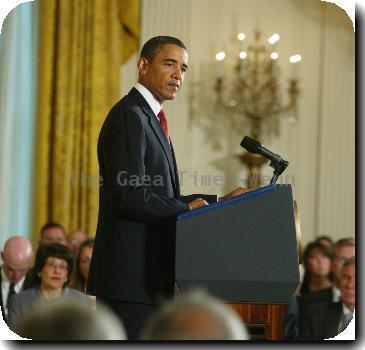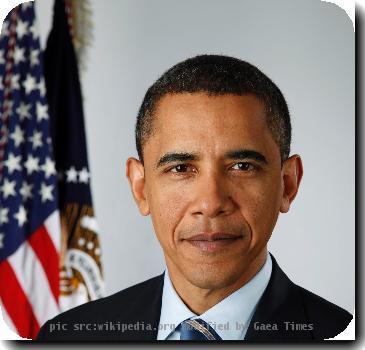Even if climate deal reached, implementing it would face hurdles around the world
By Rod Mcguirk, APFriday, December 11, 2009
Hurdles remain even if climate deal is reached
JAKARTA, Indonesia — For Indonesian farmers, burning down rain forests is the cheapest and fastest way to clear land for palm oil and pulp and paper plantations.
The millions of acres they burn every year has made their Southeast Asian nation the world’s third-largest producer of greenhouse gases. And, environmentalists warn, the powerful forestry and agricultural industry will likely stymie any efforts to crack down.
As difficult as it may be to hammer out a global climate deal in Copenhagen, implementing one could prove even harder.
From New Delhi to Washington, domestic political opposition, corruption, grass-roots intransigence and sheer bureaucratic incompetence stand as significant roadblocks to any agreement on emissions curbs.
Many across the globe are hoping Indonesia, with 10 percent of the worlds’ forests, can be a leader in rain-forest preservation.
“But I think everybody has yet to realize how difficult this is going to be,” said Frances Seymour, director-general of the Indonesia-based Center for International Forestry Research.
Using fire to clear land is illegal in Indonesia, but prosecutions are rare, said Greenpeace spokesman Brian Martin. Almost 18 million acres (7.2 million hectares) of land was burned during the last dry season from January to mid-October, said Ali Akbar, an activist from the Indonesian Forum on Environment.
While reducing emissions has broad political support here, activists question whether the government has the political will to take on mismanagement and corruption in the regulation of the forestry industry, which costs the country an estimated $2 billion a year.
“It will take strong action at the top levels of Indonesian government and international trading partners to halt the corruption in the timber industry,” Human Rights Watch deputy program director Joe Saunders said.
The challenges are great across the world.
In the U.S., getting the treaty ratified, even by a Democrat-controlled Senate, will be a battle.
Republicans have charged that the emissions cuts President Barack Obama plans to offer at Copenhagen would cost jobs, making moderate Democrats nervous.
Some have urged Obama to be cautious about what he agrees to, knowing full well that the last time a U.S. administration signed an international climate treaty in the late 1990s in Kyoto, the Senate balked at ratifying it. The concern then — and now — was exceptions in the deal for developing countries, among the fastest-growing emitters of greenhouse gases.
Developing countries face their own dilemmas.
South Africa, facing severe domestic pressure to resolve energy shortages, is committed to building more coal-powered plants, angering activists.
“If (President Jacob) Zuma is in Copenhagen, he should have first cleaned his house,” said Makoma Lekalakala, a South African environmentalist. “Renewable energy is an option and at the moment that is not exploited. The government needs to have political will to invest in renewable technologies.”
In India, failed efforts to clean up its rivers are instructive of how difficult it could be to clean up the air.
Despite a 2001 Supreme Court ruling ordering the cleanup of the Yamuna River, despite billions in government spending to do just that, the waterway that supplies 70 percent of New Delhi’s water remains a frothy, putrid sewer.
“Twenty five years ago, I used to drink from here,” said Om Prakash, a 72-year-old priest sitting near a canal dumping sewage into the river. “Nobody is taking care of Mother Yamuna.”
A report from the New Delhi-based Center for Science and Environment blamed in part the improper placement of treatment plants, along with fights between water-starved states over managing the river water.
The corruption and bureaucracy that derails many public initiatives in India are factors too.
In the industrial town of Kanpur, along the Ganges, officials say factories are ignoring regulations and dumping untreated sewage and industrial pollution, turning the holy river into a toxic wasteland.
“Laws are there to prevent industries from pouring their waste into the Ganges, but we need their implementation in letter and spirit,” said Alok Ranjan, a local urban development official.
Still, many activists expressed optimism that India would have an easier time raising fuel efficiency standards for cars, reducing emissions from new power plants and establishing more efficient building codes than it had in trying to clean up the rivers.
India, which ranks fifth in the world in carbon dioxide emissions, pledged last week to slow the growth of its emissions significantly over the next decade.
“We are a country in a mess, but I think we have the financial technical and technological means to climb out of this mess. And there is a sliver of hope that we will,” said Bittu Sahgal, editor of Sanctuary Asia, an environmental magazine.
The country faces a host of hurdles: powerful state governments that often clash with the central government, a deeply entrenched bureaucracy and little history of conservation.
Sitting near the Yamuna’s bank, Mohan Lal, 61, said he’s seen personal attitudes to the environment changing and has himself grown more concerned about littering.
“Slowly and steadily, people are realizing these things have to be taken care of,” he said.
Then he took a long sip from his tea, swung his arm and threw the plastic cup into the brush.
EDITOR’S NOTE — Find behind-the-scenes information, blog posts and discussion about the Copenhagen climate conference at www.facebook.com/theclimatepool, a Facebook page run by AP and an array of international news agencies. Follow coverage and blogging of the event on Twitter at: www.twitter.com/AP_ClimatePool.
Nessman reported from New Delhi and McGuirk from Jakarta. Associated Press writers Ali Kotarumalos in Jakarta, Donna Bryson in Johannesburg, South Africa, Biswajeet Banerjee in Kanpur, India and Dina Cappiello in Washington also contributed to this report.
Tags: Africa, Air Quality, Asia, Barack Obama, Copenhagen, Denmark, Environmental Activism, Environmental Concerns, Environmental Laws And Regulations, Europe, Forests, Government Regulations, India, Indonesia, Industry Regulation, International Agreements, Jakarta, Java, New Delhi, North America, Political Corruption, Political Issues, Rain Forests, South Africa, South Asia, Southeast Asia, Southern Africa, Twitter, United States, Water Environment, Western Europe




